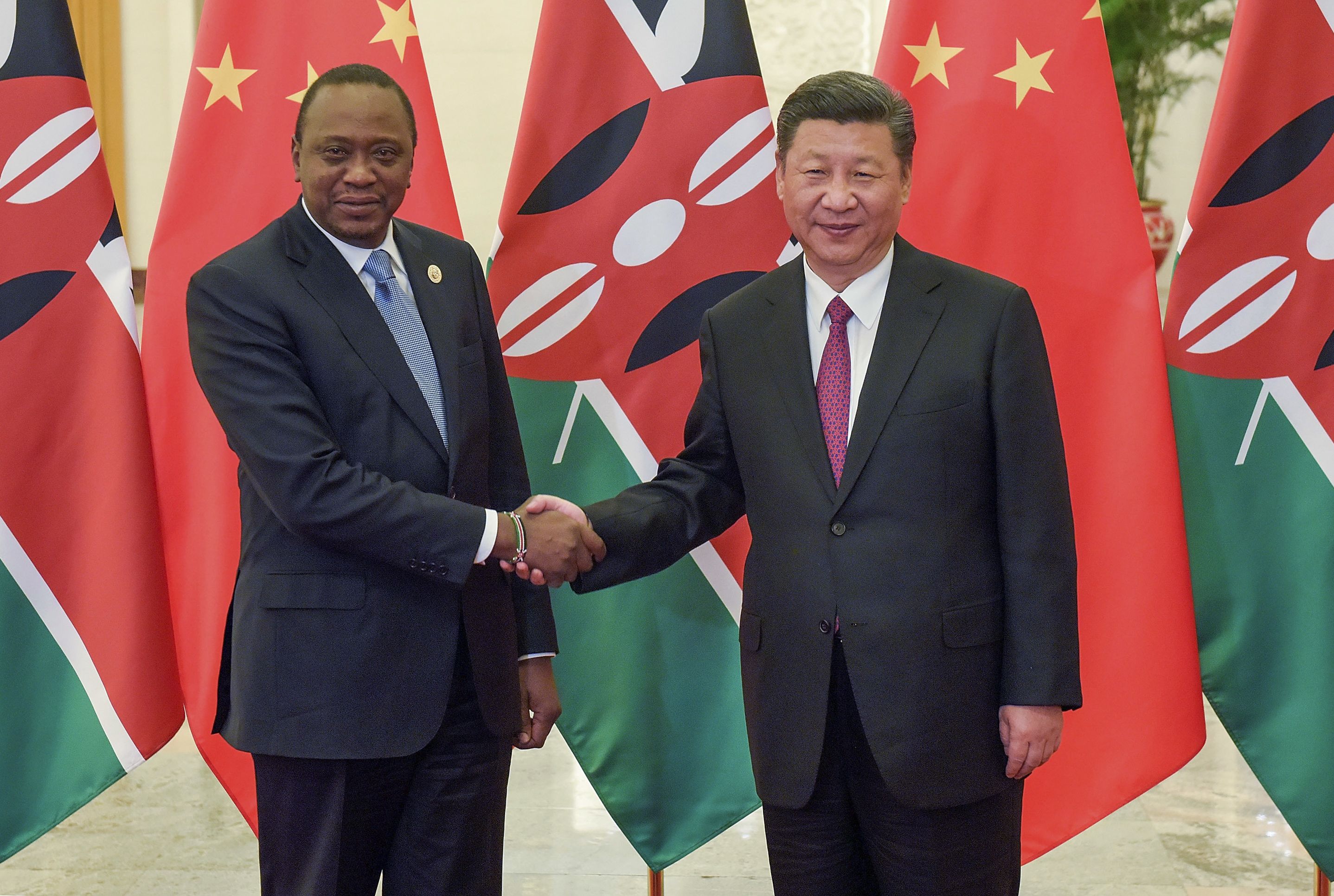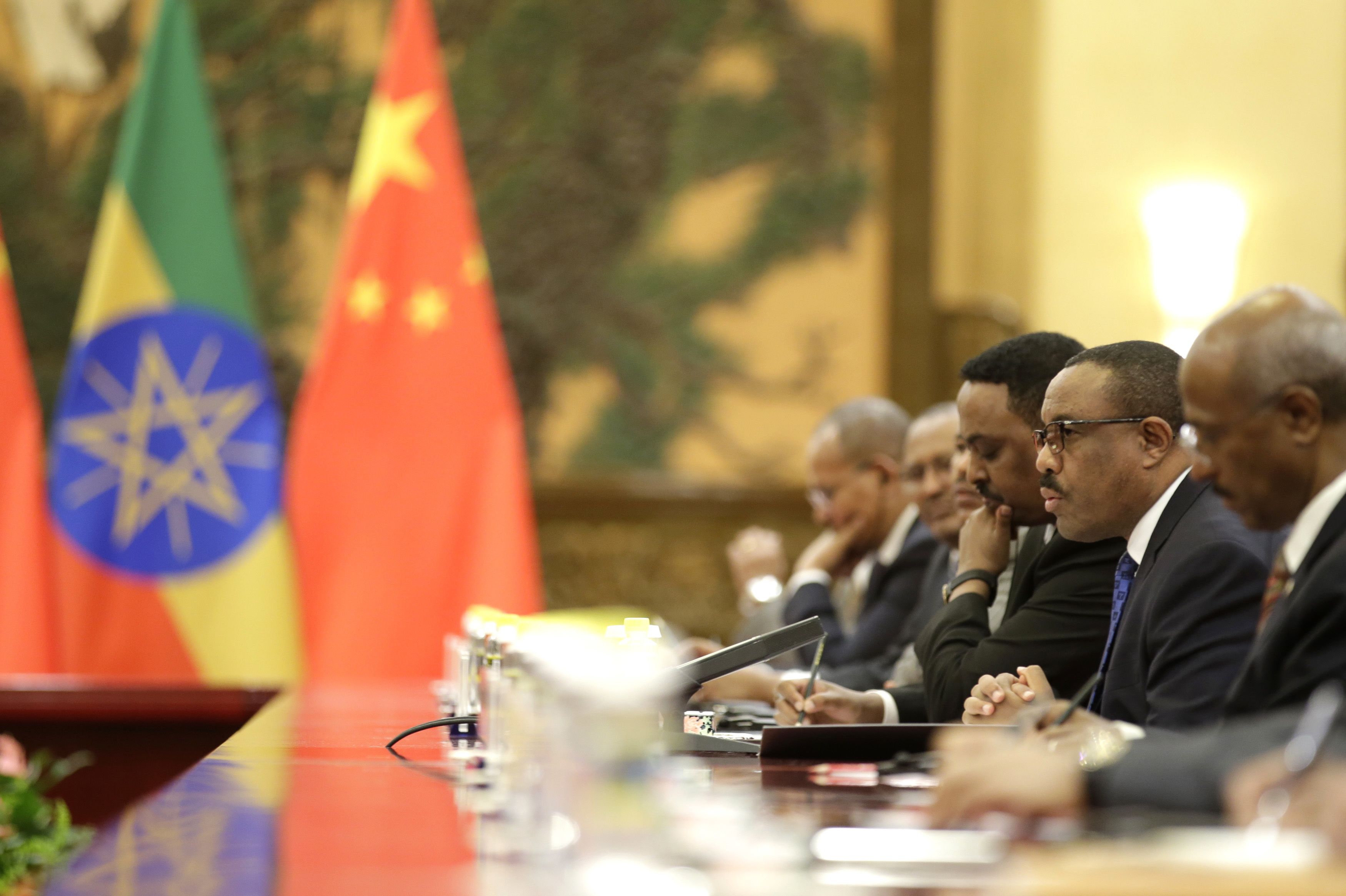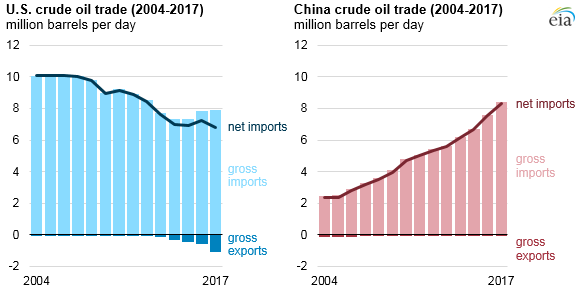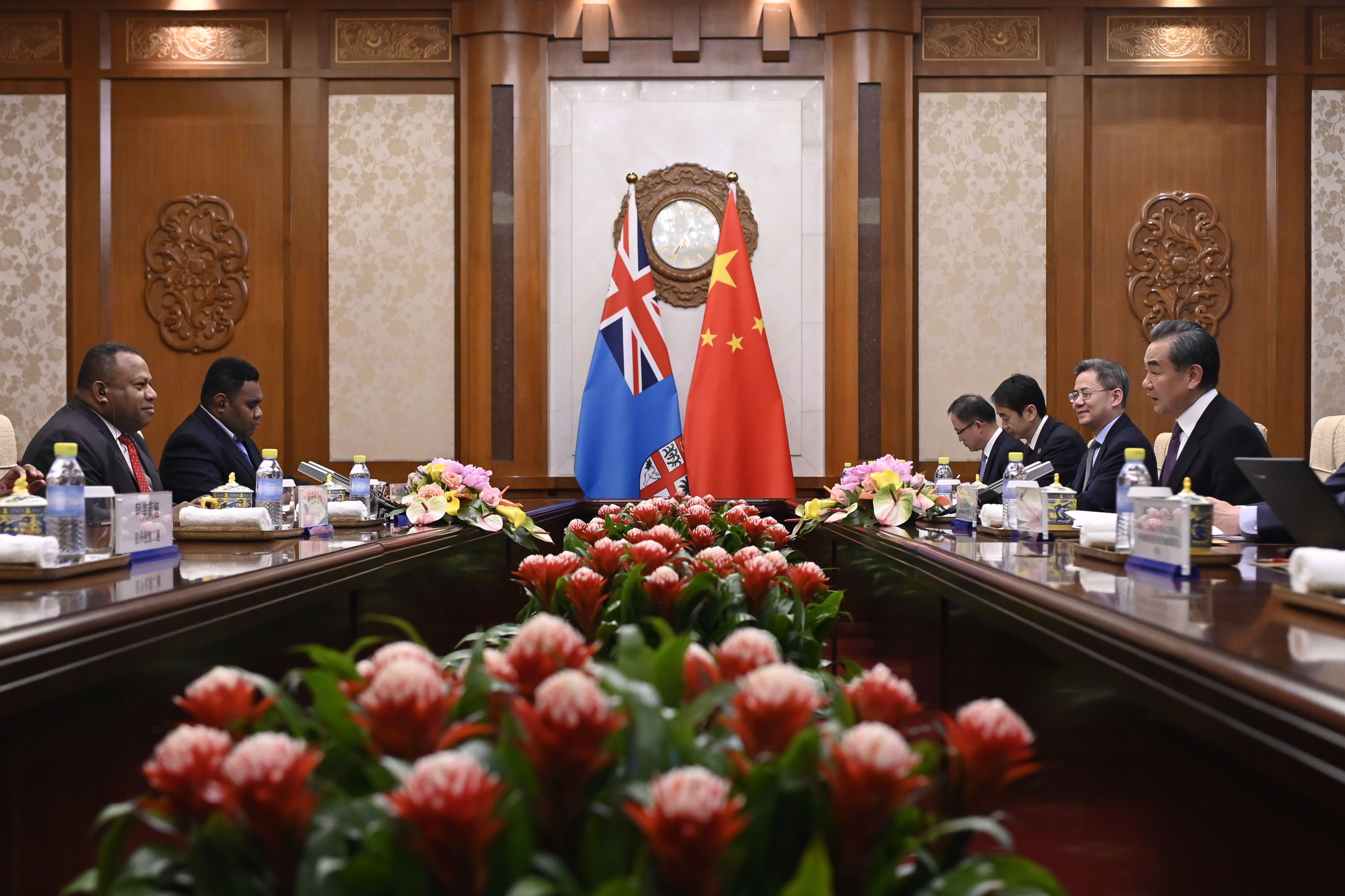U.S. efforts to curb Chinese influence in the South Pacific Ocean
China aims to dominate the South Pacific through gaining control of shipping routes and island nations.
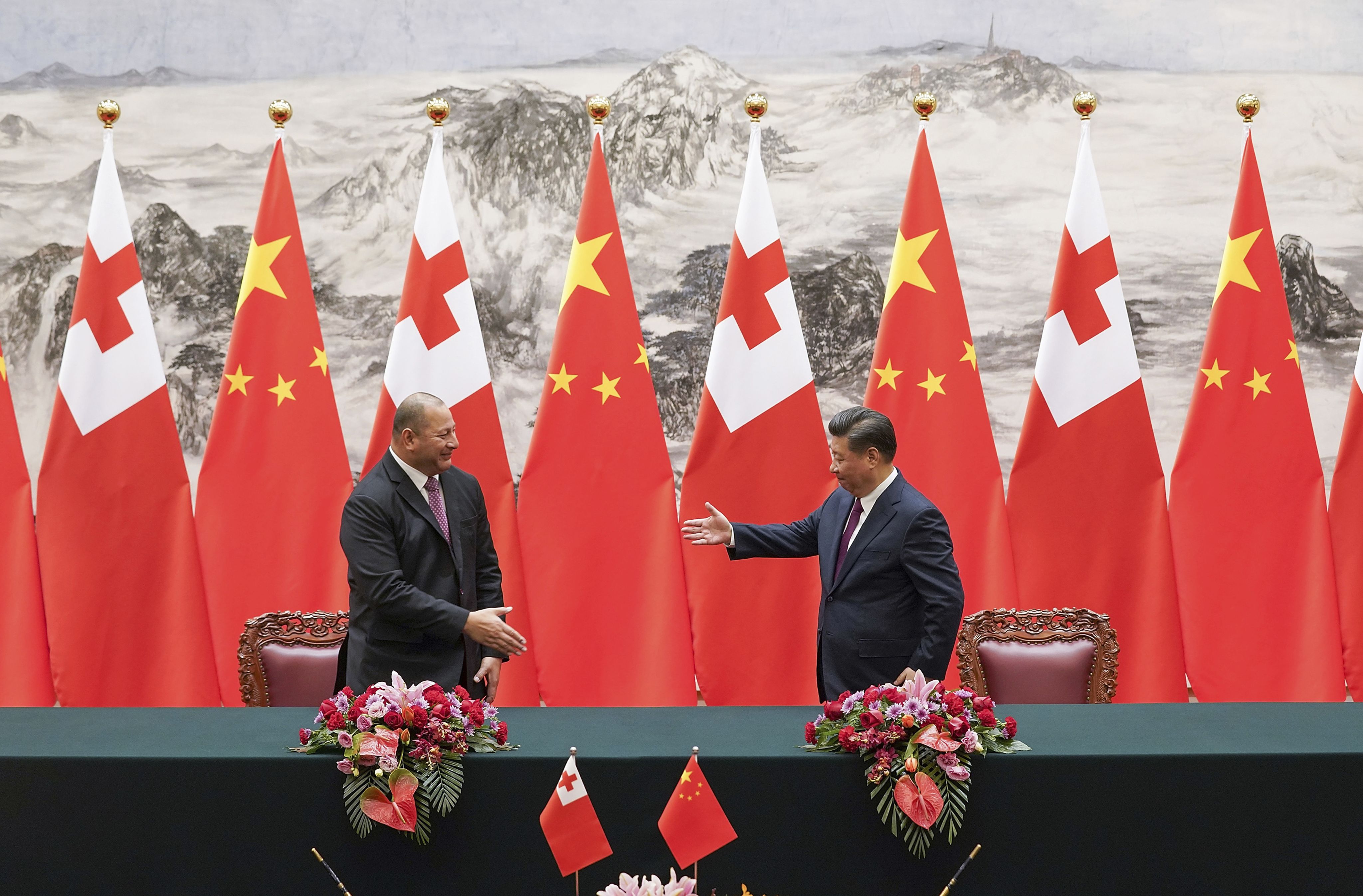
This story was reported and written by Luke Anderson, Emil Asaf, Billy Banks, Kiley Beykirch, Nolan Carney, Sasha Chapman, Taylor Chronert, Garrett Cook, Lillie Davidson, Caroline Denning, Hannah Dollar, Ella Funke, Georgie Hager, Gavin Hughes, Jaida Joyner, Caroline Kellam, Cecilia Le, Olivia Lee, Abby McCutchan, Paul John McMahon, Sydney Miller, Katie Mitchell, Jordan Montgomery, Anne Murdock Stewart, Hayden Olander, Logan Rose, Alexandria Salinas, Mattea Skinner, Corrigan Smiley, Sarah Smith, Jose Straface, Alicia Takacs, Madeleine Thornhill and Lailah White.
Introduction
While conflicts in the Middle East and Europe dominate headlines, some experts are concerned about China’s efforts to expand its borders and influence in the South Pacific Ocean.
The region is a significant strategic location for China and the United States. Since World War II, the shipping routes in the area have played an important role in international relations. The region is also home to island nations, including Tonga, Fiji and the Federal States of Micronesia, which possess wells of natural resources. These two factors are especially appealing to China in their mission to expand their authority in the sector.
Energy is crucial for developing nations. The U.S. Department of Defense is forming a plan to provide energy to the countries of the territory that will simultaneously boost their economies. The current concern is that if the United States does not act quickly, China will step in.
In addition to the South Pacific, China has expanded its investments beyond the continent of Asia and well into Africa. By promising military and economic support to growing African nations, China has more authority to demand natural resources and support. Some are concerned that this is the same strategy being used in the South Pacific.
"[China has] basically funded every new road and every new electricity source in Africa in the past 15 years. The Chinese own that. So the idea of the U.S. government is how do we keep that from happening?...How do they get their goods?," Dr. Ann Blunzter, the director of TCU's Ralph Lowe Energy Institute, said.
Challenges to guaranteeing security in the region include navigating the various geographic and socio-cultural differences of each island nation.
China's role in Africa may signal its intentions in the South Pacific
China has been a player in Africa for decades — especially when it comes to investments and cash.
Its financing of many nations within the continent has risen significantly since 2003, according to the Foreign Policy Research Initiative. This has included an 18% increase in Chinese foreign direct investment (FDI) to Africa from 2004 to 2016, along with an increase in financing of Chinese-contracted projects.
In 2019 alone, China contributed $208 billion in trade across Africa, making it the continent’s largest trading partner as well as “the most extensively involved actor in Africa’s socio-economic landscape,” according to the Journal of African Foreign Affairs (JAFA).
This dominance has some worried that China could “use its increasing economic power to extract concessions that may be economically and politically detrimental to the continent,” according to JAFA.
TCU’s Chief Inclusion Officer Dr. Jonathan Benjamin-Alvarado said that China has been promising a lot to many countries for many years. "They've been very aggressive in going into a number of different places around the world, Africa being one of them," he said.
Because of this aggression, China has become a dominant partner in all things related to the projects in which they are involved. "What we're now starting to see is China has spent an awful lot of money all around the world, to see a lot of different policy failures, especially for some development ventures," Benjamin-Alvarado said.
He said this project in the South Pacific is intended in part to lessen China's influence, allowing the U.S. to serve as a more honest partner.
"I know that a lot of countries walk away from their engagement with China, angry and bitter because they never had any other kind of seat at the table that they should have had, that they don't feel that they're legitimate partners in a lot of these ventures and this is problematic," he said.
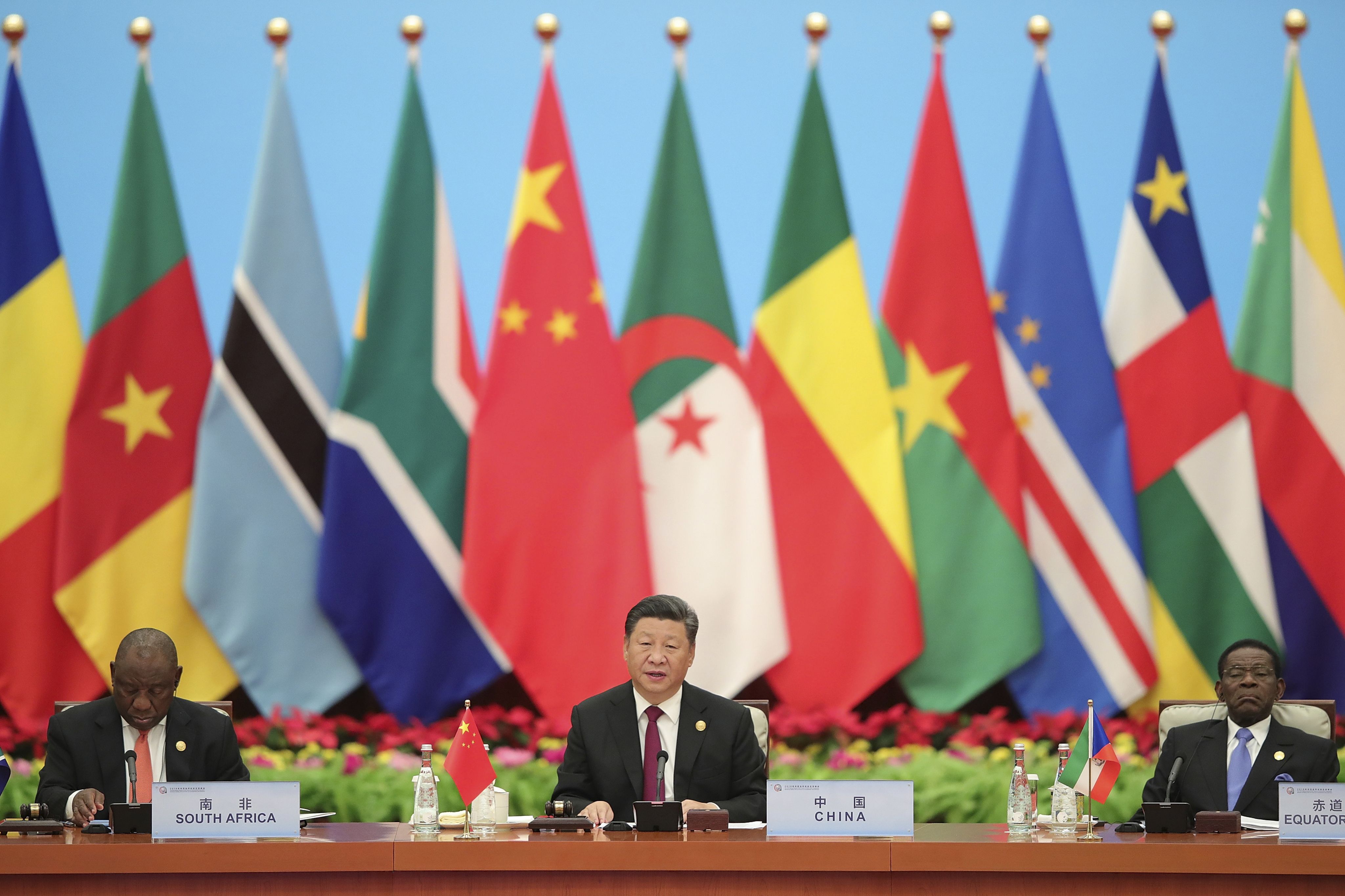
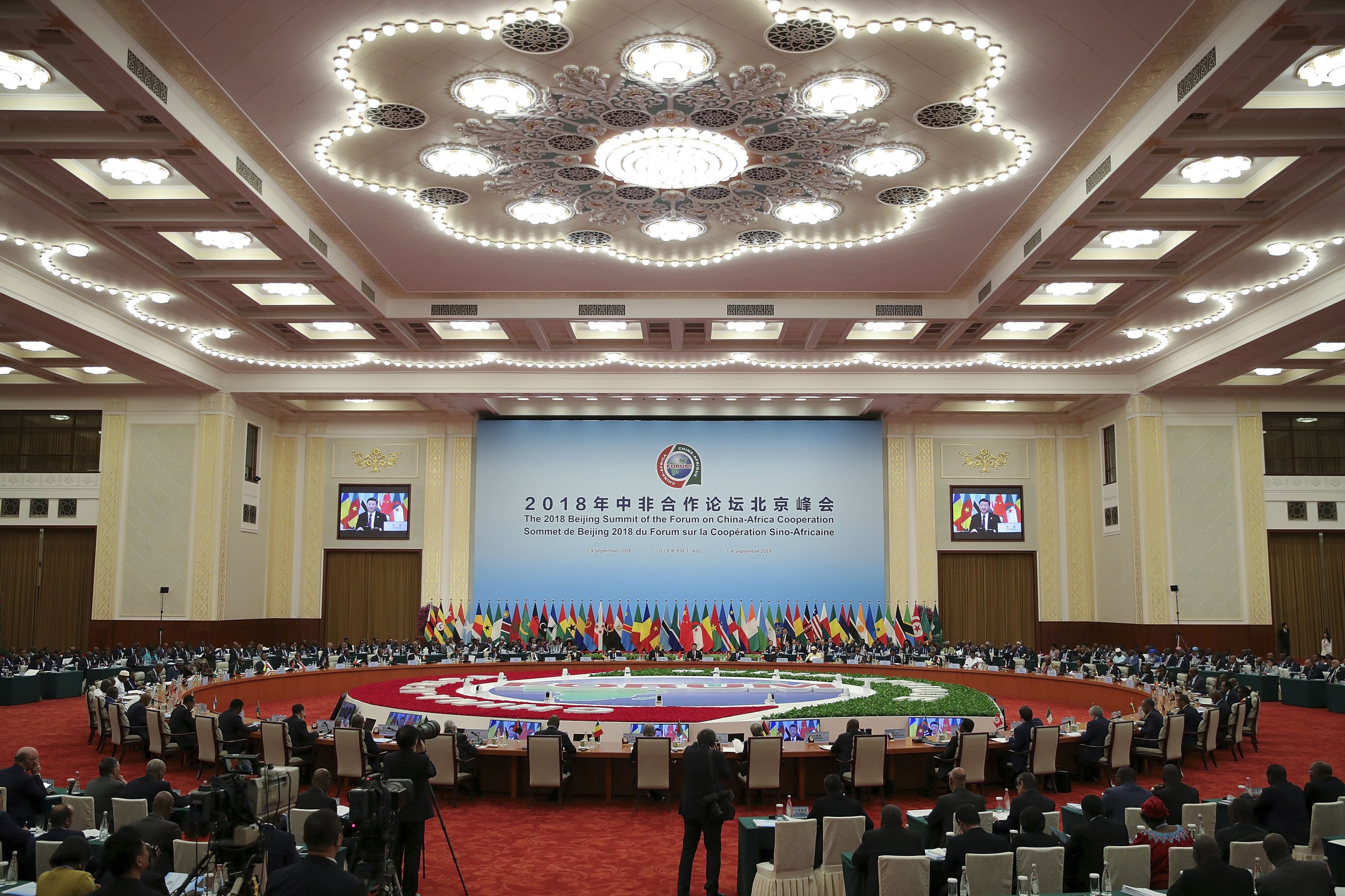
China's influence in Kenya, Ethiopia and the DRC
Kenyan President Uhuru Kenyatta, left, and Chinese President Xi Jinping pose for photographers, in Beijing, Monday, May 15, 2017. (Etienne Oliveau/Pool Photo via AP)
Kenyan President Uhuru Kenyatta, left, and Chinese President Xi Jinping pose for photographers, in Beijing, Monday, May 15, 2017. (Etienne Oliveau/Pool Photo via AP)
Kenya
Kenya's debt crisis has strained its relationship with China, yet the nation has not withdrawn support, according to Global Voices.
Kenya is a major player in China’s Belt and Road Initiative (BRI), an infrastructure plan that attempts to connect nations across Asia, Europe, the Middle East and Africa through constructing roadways, ports and rail networks, according to The Economist.
However, the geo-economic relationship between the two nations has frayed as Kenyan business owners and traders have protested China's policies.
Still, Kenyan President William Ruto continues to seek out Chinese financial support in the form of a $1 billion loan, according to AP News.
Ethiopia's Prime Minister Hailemariam Desalegn, second from right, speaks during a meeting with China's President Xi Jinping, unseen, in Beijing Friday, May 12, 2017. (Jason Lee/Pool Photo via AP)
Ethiopia's Prime Minister Hailemariam Desalegn, second from right, speaks during a meeting with China's President Xi Jinping, unseen, in Beijing Friday, May 12, 2017. (Jason Lee/Pool Photo via AP)
Ethiopia
China’s involvement in Ethiopia is largely why the country remains economically stable.
The nation is heavily reliant on China’s BRI to maintain proper flow of resources and connectivity to the rest of the world’s import and export industry, according to the National Library of Medicine.
Researchers and experts that study Ethiopia’s economic development have found that China’s resources and aid are vital to the country’s continued growth and a lack of funding could send the nation into a permanent economic downfall.
The handover ceremony of Masumbu School in the Democratic Republic of the Congo, built by China Nonferrous Metals Group's joint venture Somidez, Wednesday, June 28, 2023. HANDOUT IMAGE - Please see special instructions. (China Nonferrous Metal Mining/news aktuell via AP Images)
The handover ceremony of Masumbu School in the Democratic Republic of the Congo, built by China Nonferrous Metals Group's joint venture Somidez, Wednesday, June 28, 2023. HANDOUT IMAGE - Please see special instructions. (China Nonferrous Metal Mining/news aktuell via AP Images)
The Democratic Republic of the Congo (DRC)
China’s involvement in the DRC started when a 2007 agreement was signed to construct 145 health centers and 31 hospitals, totaling around $3 billion in development loans, according to The National Library of Medicine.
Africa’s second largest country, the DRC, provides vast amounts of natural resources and land for potential infrastructural investments for China, according to The Diplomat.
The Congolese army has also been deployed in China multiple times to aid military efforts. China has provided military training and equipment in return for the nation’s assistance, forming a symbiotic relationship.
U.S. falls short in its support for Africa
The Biden administration continues some of the longstanding support from the U.S. for Africa through aiding health improvements, expanding democratic ideals and providing peace in various nations, according to a press release.
However, the administration admits that “some of [their] longstanding approaches have become insufficient to meet new challenges in a more contested and competitive world.”
The U.S. has four main priorities for the region: foster openness, provide diplomatic and security funds, aid nations in pandemic recovery and provide energy infrastructure to fight climate change.
The White House has accused China of having ulterior motives for its investments, namely increasing the scope of its international influence, eroding the relations the United States has with African nations and increasing their trade investments to minimize openness with the rest of the world.
Some are concerned China wants to do the same in the South Pacific to dominate the region.
According to a White House press release, the U.S. has a “commitment to enhancing [their] partnership with the Pacific Islands, and the respective governments, to achieve [their] shared vision for a resilient Pacific region of peace, harmony, security, social inclusion, and prosperity, where individuals can reach their potential, the environment can thrive, and democracy can flourish.”
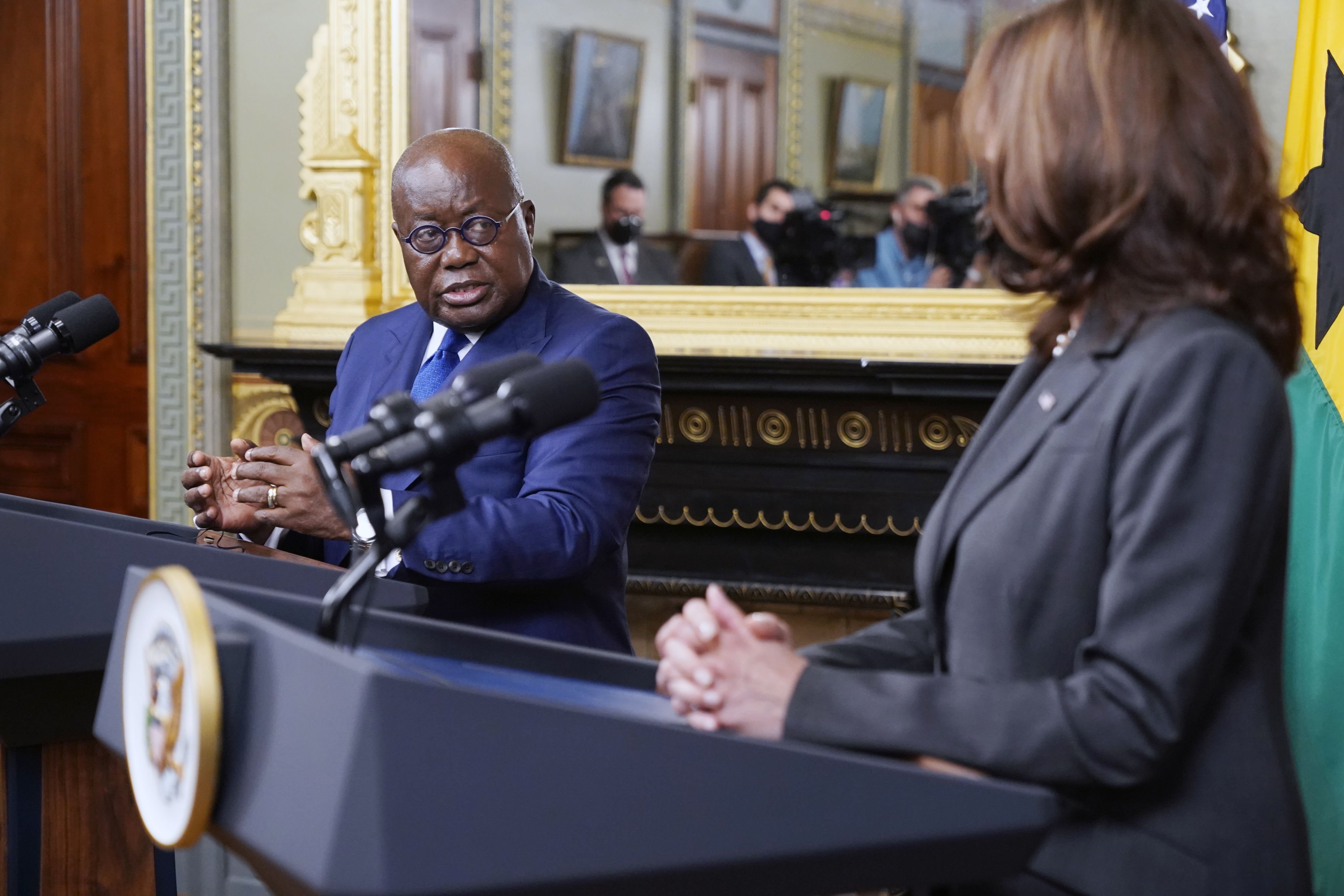

Why China is interested in the South Pacific
A driving motive for China's involvement in the South Pacific can be found in the oil fields that lie within the borders of the island nations.
In addition to efforts of partnering with the countries, China has begun constructing man-made islands and reefs in the region, theoretically giving them water and mining rights to the area.
According to the U.S. Energy Information Administration, China is the world's largest importer of oil following decades of being an oil exporter.
Now, to keep up with the demand of their manufacturing economy, the nation is eager to find reserves beyond their borders to make up for the deficit.
U.S. Energy Information Administration, Petroleum Supply Monthly and Weekly Petroleum Status Report, China General Administration of Customs, based on Bloomberg, L.P.
U.S. Energy Information Administration, Petroleum Supply Monthly and Weekly Petroleum Status Report, China General Administration of Customs, based on Bloomberg, L.P.
The South Pacific Island nations' oil deposits would increase China's reserves and significantly contribute to its infrastructure projects around the world.
Fiji becomes a focus for the PRC
Fiji, an island that is 0.19% the size of the United States, is of particular interest to China. It holds important economic and strategic value through its agricultural and fishing industries, as well as its access to critical maritime routes.
Fiji’s resources and well-positioned geographic location have designated the island as a focal point for power struggles among some of the globe's most influential nations.
“While the land masses of the Pacific Islands appear small on the map, their exclusive economic zones encompass a vast area that is critical to global security and vital to the global economy, hosting a large portion of the world’s shipping, fisheries, and naval corridors,” according to the U.S. Department of State.
In an attempt to build a sphere of influence on the island, China established a security partnership between the two nations in 2011.
This partnership created police training programs between Chinese and Fijian officers and initiated the implementation of sophisticated surveillance equipment, including closed-circuit cameras and drones.
The result is heavy police intervention in Fiji with Chinese officials commandeering cases designated for Fiji officials.
“There were knocks on people’s doors in [the city of] Nadi, and there were Chinese people in full uniform arresting people,” said Aman Ravindra-Singh, a human rights and constitutional lawyer in Fiji. “It was unheard of. It’s almost like we were invaded.”
In response to China’s increase in police presence, Fijian Prime Minister Sitiveni Rabuka terminated the security agreement in 2023.
Chinese Foreign Minister Wang Yi, right, and Fiji's Minister for Foreign Affairs Inia Seruiratu meet at the Diaoyutai State Guesthouse Tuesday, June 11, 2019, in Beijing. (Wang Zhao/Pool Photo via AP)
Chinese Foreign Minister Wang Yi, right, and Fiji's Minister for Foreign Affairs Inia Seruiratu meet at the Diaoyutai State Guesthouse Tuesday, June 11, 2019, in Beijing. (Wang Zhao/Pool Photo via AP)
In the 2022 election, the Bainimarama party, which is known for supporting policies that promoted strong ties to Chinese police, lost the majority in the Fijian parliament for the first time since 2014. Rabuka was elected parliament leader by one vote. Contrary to the Bainimarama party, Rabuka has been a consistent advocate for Fijian nonalignment.
The United States has continued to pursue the development of stronger ties in Fiji, deeming it necessary for national security and the preservation of U.S. global influence.
“When the U.S. does not fulfill its commitments in the Pacific it creates a vacuum that China is waiting to fill,” said Steven McGann, former U.S. ambassador to Fiji.
Challenges for the U.S. in the South Pacific
The White House has proposed multiple efforts to counteract the steps taken by China in the South Pacific, including upgrading the energy infrastructure of various island nations.
In September, it announced that $810 million has been pledged to be used in the region as part of the U.S. Pacific Partnership strategy.
Additionally, President Biden has requested an extra $200 million.
Supporters of the endeavor point to the good the project could bring to the part of the world. Others are concerned it could burden taxpayers.
This has caused roadblocks in creating the necessary legislation to bring efforts to fruition and has forced its supporters to turn to private investors.
To win over private investors, essential areas of importance need to be addressed, including: the country's national interest, environmental responsibility, economic opportunity, social impact and global cooperation.
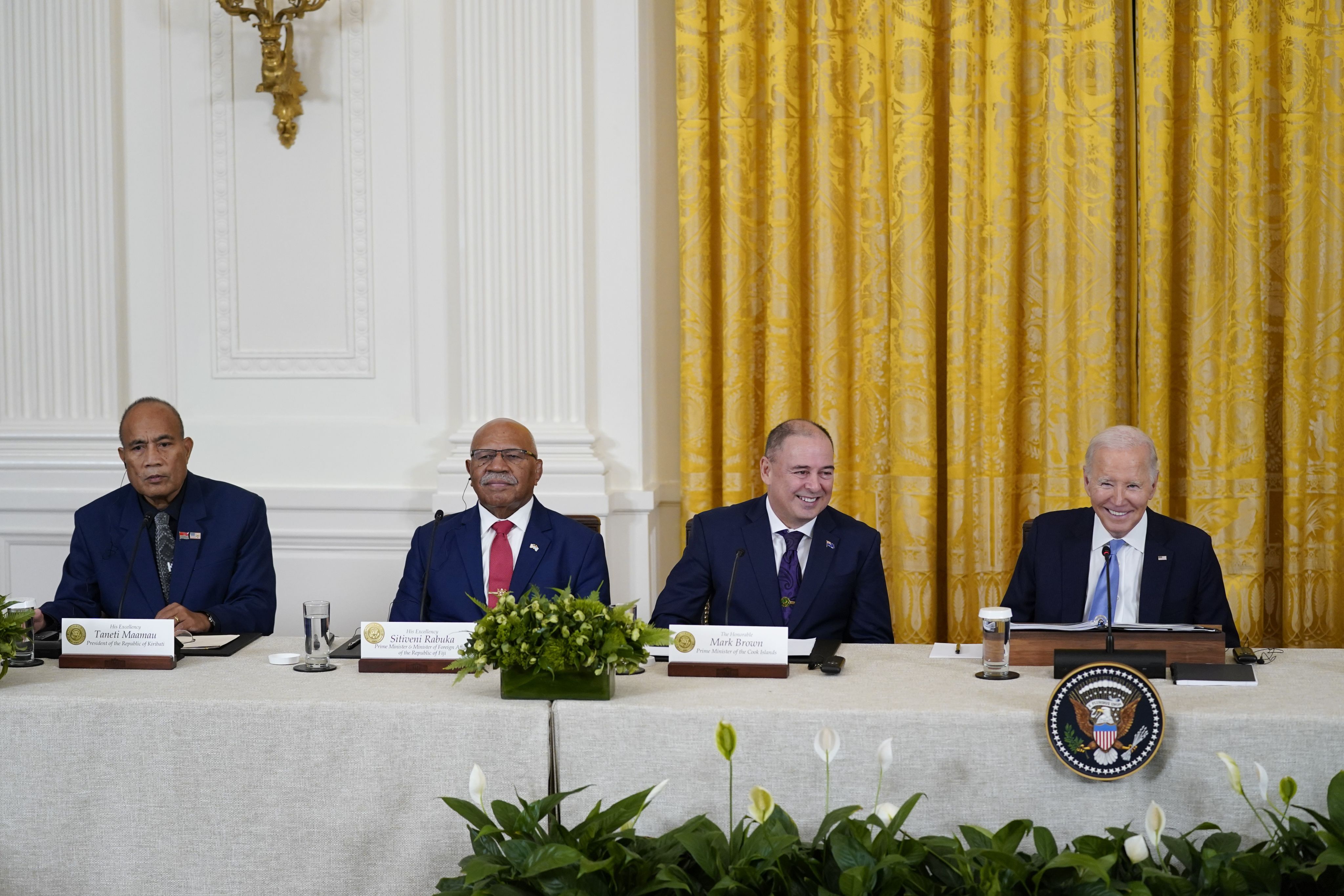
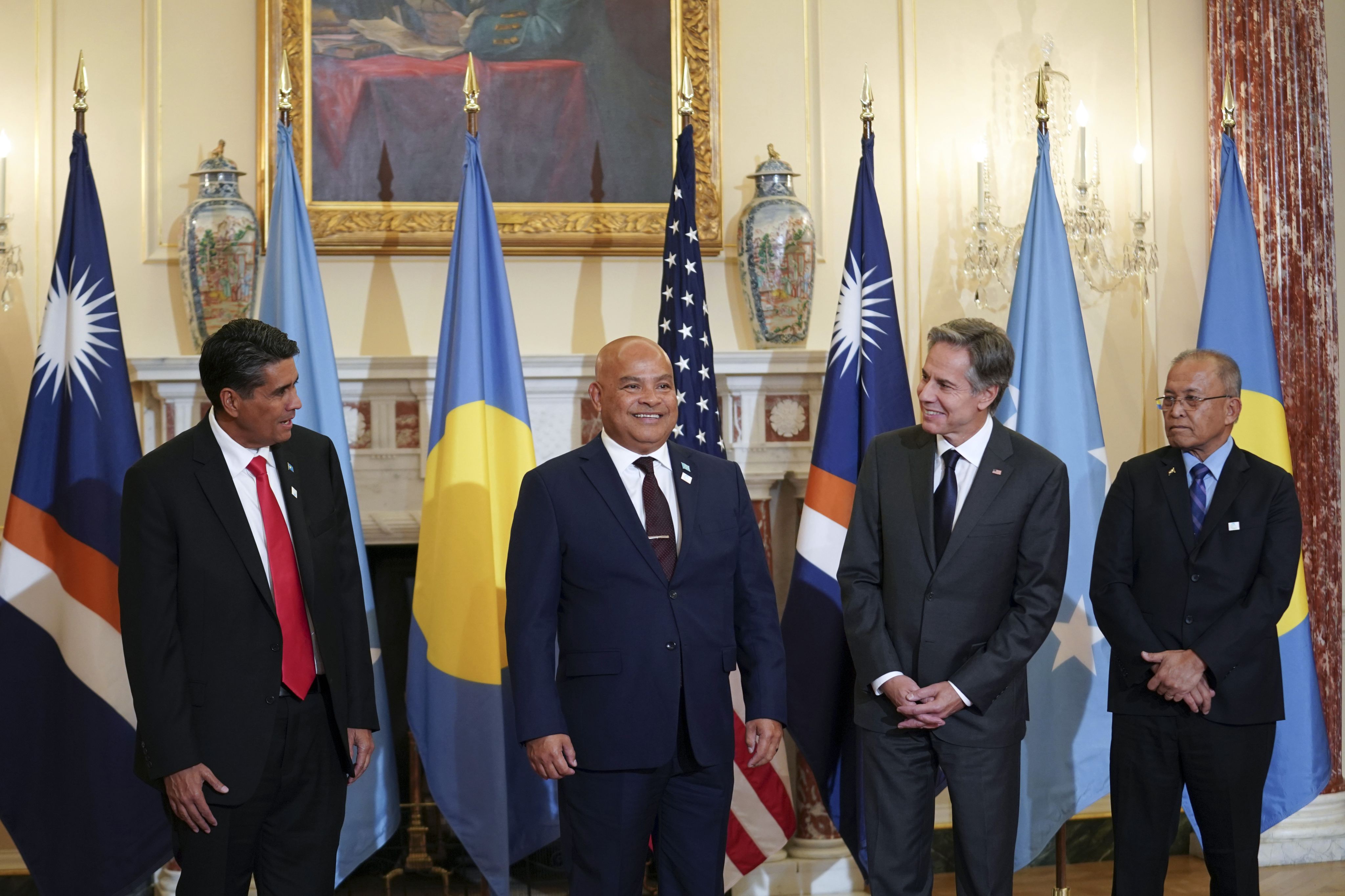
Ralph Lowe Energy Institute Executive Director Ann Blunzter, U.S. Navy Admiral Samuel Paparo and Energy MBA Candidate Pete Baldwin (neeley.tcu.edu).
Ralph Lowe Energy Institute Executive Director Ann Blunzter, U.S. Navy Admiral Samuel Paparo and Energy MBA Candidate Pete Baldwin (neeley.tcu.edu).
TCU's involvement in finding a solution
The need for U.S. involvement in the Southwest Pacific Islands, specifically from university researchers, is on the rise due to the alarming fact that “China will likely become the largest economy by 2030,” according to Bluntzer.
To combat China’s influence in the Pacific and abroad, energy solutions are needed to strengthen these island countries. Not only does energy help solve geopolitical issues and boost GDP growth, but it is also essential for a country’s overall success.
“There are no low-energy, rich, developed countries–not one,” Bluntzer said.
The U.S. Department of Defense requested that the TCU Ralph Lowe Energy Institute develop an energy security plan in the region that will bolster economic growth and deter these U.S. strategic partners from falling into China’s arms.
TCU has partnered with other universities, including Oklahoma State University and the University of Hawaii, and businesses in the private sector, such as the Norway-based Ocean Sun and Hyman Capital, a company led by TCU alum, Kyle Bass, to tackle these problems together.
The emphasis placed on these partnerships stems from the idea that “private investment alone won’t succeed,” Bass said.
The need for support from major and local governments must also come together if the project is to succeed sooner rather than later. Countries like Japan, New Zealand, Australia, Taiwan and South Korea would be notable additions to these partnerships, helping those already involved take a major step ahead of China.
The biggest issue with this project is making sure investors eventually see their returns; however, that could take some time.
“The problem is the negative rate of return,” Bluntzer said. “No private capital will be interested unless there is government involvement.” Amongst five initiatives that TCU has with this project the fact that “energy can help solve geopolitical issues is at the top,” Bluntzer said.
Fortunately, TCU’s findings also suggest that this project could lead to something much larger. “There’s compelling evidence for a domestic hydrocarbon fuel source suggesting exploration should be pursued,” Bluntzer said.
Bluntzer and the Pacific Island Energy Institute presented their findings to Admiral Samuel Paparo, the commander of the U.S. Pacific Fleet, at the Joint Base Pearl Harbor–Hickam on Friday, Dec. 1.
The future of the Ralph Lowe Energy Institute's efforts in the South Pacific
Compilation of Ralph Lowe Energy Institute events. (neeley.tcu.edu)
Compilation of Ralph Lowe Energy Institute events. (neeley.tcu.edu)
New challenges arose regarding the project's success following a visit to Tonga by a TCU delegation in March 2024.
The purpose of the trip was "to do some on the ground research and find out if the project we are proposing to the U.S. Department of Defense is something that could realistically be implemented, and more importantly, is it going to be impactful to the people of Tonga?" said Bluntzer.
With the region facing many environmental and infrastructural obstacles including tsunamis and an insufficient grid framework, the team has to reimagine how to implement the same technology, but ensure it lasts.
Bluntzer said the proposed technology is the right fit for nations like Tonga.
During the visit, the delegation talked with local residents about the efforts TCU is making to improve the region and were met with excitement over the jobs it could bring and how these advancements could protect the nation from the effects of climate change, Bluntzer said.
This partnership between the U.S. and Tonga is intended to be an investment in the country's long-term economic independence.
"If you take an industry like energy and you're able to not only bring the latest and greatest technologies, but you're also able to train the people to maintain the work in this sector, then they won't have to fly in people from New Zealand to repair solar panels and wind turbines," said Bluntzer.
The hope for this project and the future of the Energy Institute is to build something that can be replicated.
"We're building a project management model where, as a higher education institution, we can come in and be the person at the table who doesn't have a personal interest in this other than trying to help build [their] economy and climate resiliency," said Bluntzer. "So the idea is here: let's start in Tonga and build a pilot project. Let's work with the government that wants to work with us and see what this looks like and how it gets implemented. Then, hopefully, this will be something we can replicate all over the globe in regard to vulnerable island nations."

